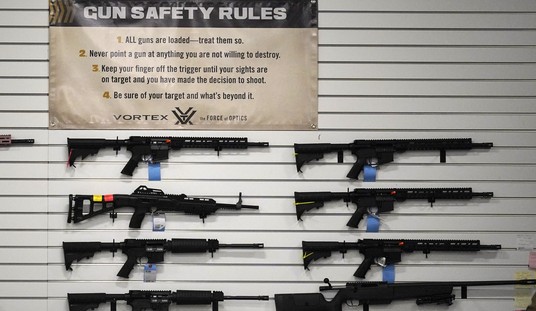Whenever there’s a mass shooting, we start talking about a lot of things. The anti-gunners want gun control while a lot of us start talking about mental illness.
After all, most of the killers had some mental health problems, so it stands to reason that at least some of us would argue that fixing our mental health system would yield some positive results.
And one would imagine this to be a non-controversial position. Even if anti-gunners don’t think it would help with our issues with violence, they tend to want the government to take care of people. The only debate should be on how to make this work.
Only, that’s not the case.
In fact, at least one mental health provider is lashing out at Republicans who connect mental illness and violence.
Mental health experts have spent years trying to fact-check politicians who blame mass shootings on mental illness, an equation they have called misleading, counterproductive and cruel. Among them is Dr Paul Appelbaum, a professor of psychiatry at Columbia University and one of the authors of a landmark study challenging assumptions about the connections between mental illness and violence risk.
“The primary misconception that exists among many members of the public is that gun violence, particularly mass shootings, results primarily from mental illness, and in fact that’s not true,” Appelbaum said. This widespread belief has “diverted attention from ways of making it harder for people to get guns”, he said, and instead focused attention on mental health interventions unlikely to prevent much violence.
The conversation has been lightly edited for length and clarity.
What’s the best estimate for how much violence in the United States is linked to mental illness?
Jeff Swanson at Duke published a study that estimated somewhere around 4% of violence was attributable to mental illness, which meant if you could get rid of all the violence that was caused by or related to mental illness, we’d still be left with 96% of the violence in this country. There are lots of reasons to want to provide good mental healthcare, but violence reduction is, in my view, pretty low on the list.
What do we know about the perpetrators of mass shootings in terms of mental illness?
We know two things: the vast majority of mass shooting perpetrators are not suffering from a serious mental illness. We also know that people with serious mental illness are somewhat overrepresented among mass shooters. Another way of saying that is: there’s an increased risk of mass violence by people with serious mental disorders, but nonetheless the vast majority of such incidents are not linked to serious mental illness.
First, I think Dr. Appelbaum is playing some rhetorical tricks here. He’s using the term “serious mental illness” here, not mental illness in general. In other words, depression may not qualify as a serious mental illness for most people, but we find that in the histories of most, if not all, mass shooters.
But, let’s say Appelbaum is right, that it’s wrong to blame mental illness for problems like mass shootings. If that’s the case, then why isn’t he going after those anti-gun lawmakers who want to mandate psychological screenings for anyone who wants to buy a gun?
If there’s a low connection between mental illness and the risk of violence, that should be just as much of an issue as well, shouldn’t it? If nothing else, it would contribute to the stigma of mental illness being associated with violence.
Yet that doesn’t seem to get the same scrutiny in the media that the Republicans’ talk of mental health efforts to combat violence seems to get. Why is that?
It’s especially interesting because, when you get into some of the suggestions that come from the push to treat “gun violence” as a public health issue, you get into things like counseling shooting victims so they’re less likely seek revenge. Counseling like that is a mental health effort, an intervention designed to shift the psychology and stop the cycle of violence we often see.
So the issue isn’t mental illness, except for when it is, apparently.
Now, don’t get me wrong. I know mental health is important and I’m uncomfortable with just lumping all mass shooters as mentally ill. In this day and age, it seems most people have some kind of mental health issue, so we shouldn’t be surprised to see it in shooters.
But I find it disingenuous for there to be a pushback on increased mental health resources as a way to try and combat violence when, at its heart, a lot of the anti-gun efforts make the same case.








Join the conversation as a VIP Member